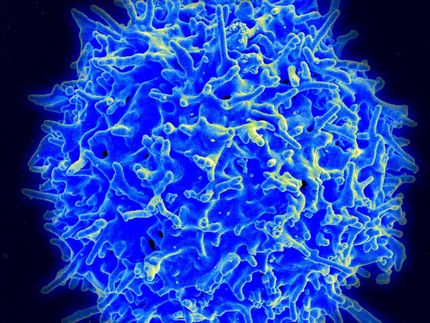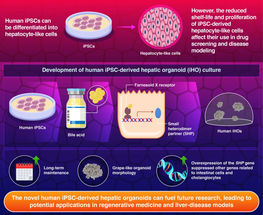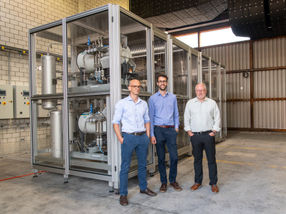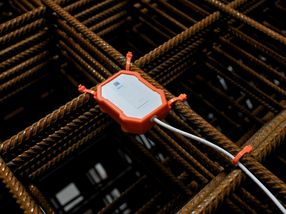Using magnetism to turn drugs on and off
Many medical conditions, such as chronic pain, cancer and diabetes, require medications that cannot be taken orally, but must be dosed intermittently, on an as-needed basis, over a long period of time. A few delivery techniques have been developed, using an implanted heat source, an implanted electronic chip or other stimuli as an "on-off" switch to release the drugs into the body. But thus far, none of these methods can reliably do all that's needed: repeatedly turn dosing on and off, deliver consistent doses and adjust doses according to the patient's need.
Researchers led by Daniel Kohane, MD, PhD of Children's Hospital Boston, funded by the National Institutes of Health, have devised a solution that combines magnetism with nanotechnology.
The team created a small implantable device, less than 1/2" in diameter, that encapsulates the drug in a specially engineered membrane, embedded with nanoparticles composed of magnetite. When a magnetic field is switched on outside the body, near the device, the nanoparticles heat up, causing the gels in the membrane to warm and temporarily collapse. This opens up pores that allow the drug to pass through and into the body. When the magnetic force is turned off, the membranes cool and the gels re-expand, closing the pores back up and halting drug delivery. No implanted electronics are required. The device, which Kohane's team is continuing to develop for clinical use, is described in the journal Nano Letters.
"A device of this kind would allow patients or their physicians to determine exactly when drugs are delivered, and in what quantities," says Kohane, who directs the Laboratory for Biomaterials and Drug Delivery in the Department of Anesthesiology at Children's.
In animal experiments, the membranes remained functional over multiple cycles. The size of the dose was controllable by the duration of the "on" pulse, and the rate of release remained steady, even 45 days after implantation.
Testing indicated that drug delivery could be turned on with only a 1 to 2 minute time lag before drug release, and turned off with a 5 to 10 minute time lag. The membranes remained mechanically stable under tensile and compression testing, indicating their durability, showed no toxicity to cells, and were not rejected by the animals' immune systems. They are activated by temperatures higher than normal body temperatures, so would not be affected by the heat of a patient's fever or inflammation.
"This novel approach to drug delivery using engineered 'smart' nanoparticles appears to overcome a number of limitations facing current methods of delivering medicines," says Alison Cole, Ph.D., who oversees anesthesia grants at the National Institutes of Health's National Institute of General Medical Sciences (NIGMS). "While some distance away from use in humans, this technology has the potential to provide precise, repeated, long-term, on-demand delivery of drugs for a number of medical applications, including the management of pain."
Most read news
Topics
Organizations

Get the life science industry in your inbox
By submitting this form you agree that LUMITOS AG will send you the newsletter(s) selected above by email. Your data will not be passed on to third parties. Your data will be stored and processed in accordance with our data protection regulations. LUMITOS may contact you by email for the purpose of advertising or market and opinion surveys. You can revoke your consent at any time without giving reasons to LUMITOS AG, Ernst-Augustin-Str. 2, 12489 Berlin, Germany or by e-mail at revoke@lumitos.com with effect for the future. In addition, each email contains a link to unsubscribe from the corresponding newsletter.
Most read news
More news from our other portals
Last viewed contents























































